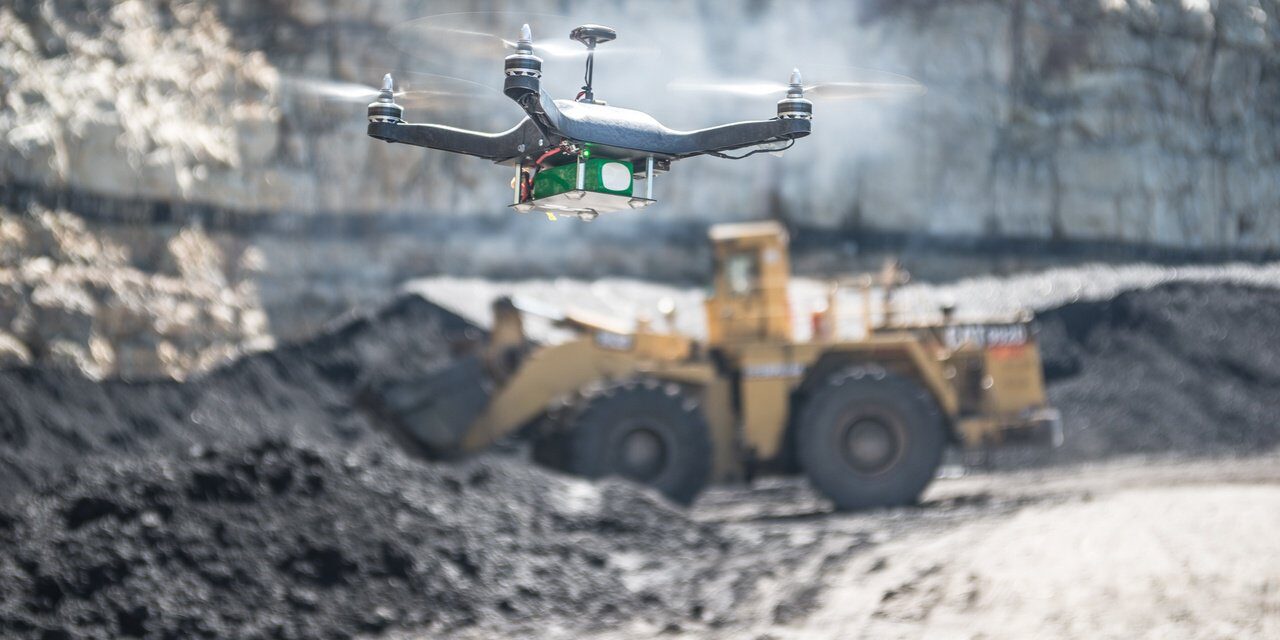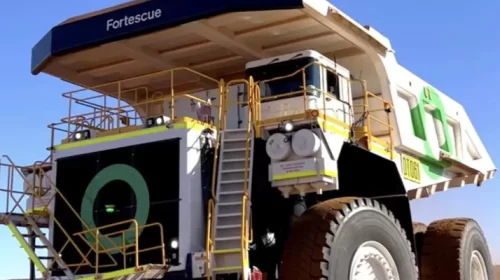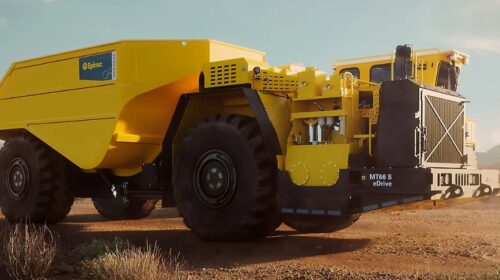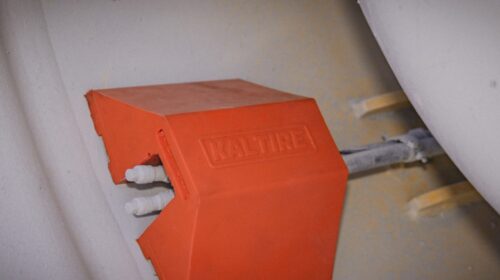Africa’s drone industry is taking off
For a long time, drones were almost exclusively used by countries in matters of public safety. However, they are now being bought by and used for a diverse range of reasons across the African continent.
In French-speaking Africa, the governments of Morocco, Algeria, Côte d’Ivoire, Senegal and Madagascar have decided to prohibit the use of these flying machines by the general public and reserve them for their own security services and administrations.
Used in agriculture, essential for infrastructure maintenance and capable of saving lives, civilian drones are still far from being accessible to everyone. This does not prevent the industry from continuing the development begun three years ago, even if it is primarily focused on safety and security issues which normally fall under the responsibility of a country’s government.
A sign of this is the fact that the French company Delta Drone, a major player in the sector listed on Euronext, has decided to set up its profit centre in Morocco. An African foray in which EM Digital, controlled by Mahdi el-Majidi, brother of Mohammed VI’s private secretary and manager of the sovereign’s private assets, acquired a 49% stake in its capital.
Surveillance patrols and topographical data
The Lyon-based group led by Christian Viguié has specialised over time and through its acquisitions, in services related to the safety and security of industrial facilities. It employs around forty people in Africa.
Its clients include mining groups such as OCP, Glencore, Anglo-American, AngloGold Ashanti, Exxaro, South 32, Newmont and Rössing Uranium; public bodies like ECOWAS; and several telecom players. It generates 14% of its turnover on the continent, about €2.2m.
This group, created in 2011, achieves this mainly through two services, called ISS Spotter and Rocketmine. The first uses autonomous machines programmed to carry out deterrent rounds, control access and remotely check the status of an incident. It comes with a video surveillance system that can be used for the exterior of commercial premises.Africa InsightWake up to the essential with the Editor’s picks. Sign upAlso receive offers from The Africa ReportAlso receive offers from The Africa Report’s partners.
Delta Drone is not the only company to seize the opportunities of a drone services sector that could be worth more than $80bn worldwide by 2025. Paul Clais, another French entrepreneur, created ROAV 7 in 2016, which offers its services to a variety of industrial groups – including Bouygues Travaux Publics, Total, ENI, Perenco – with the majority of its activity taking place in Africa.
African players
In Kenya, an air cargo company called Astral Aerial started using drones in 2017, offering a wide range of services from job tracking to aerial mapping, oilfield exploration and last-mile delivery.
Other challengers exist in Niger. For example, Drone Africa Service, a start-up created in 2017 by Abdoul-Aziz Kountché and supported by Orange, is democratising the use of drones. Specialised in road safety and urban environments, the Nigerien company also offers its services to industrial clients. At the same time, the company offers training courses on how to operate these flying machines, which are open to all.
South Africa, which has regulations on the circulation of drones, is one of the countries at the cutting edge of these technologies. UAV Industries, which has specialised in commercial drones since 2014, launched a drone operations & flight school in 2017. No doubt this programme will only become more and more popular in the future.
For a long time, drones were almost exclusively used by countries in matters of public safety. However, they are now being bought by and used for a diverse range of reasons across the African continent.
In French-speaking Africa, the governments of Morocco, Algeria, Côte d’Ivoire, Senegal and Madagascar have decided to prohibit the use of these flying machines by the general public and reserve them for their own security services and administrations.
Used in agriculture, essential for infrastructure maintenance and capable of saving lives, civilian drones are still far from being accessible to everyone. This does not prevent the industry from continuing the development begun three years ago, even if it is primarily focused on safety and security issues which normally fall under the responsibility of a country’s government.
A sign of this is the fact that the French company Delta Drone, a major player in the sector listed on Euronext, has decided to set up its profit centre in Morocco. An African foray in which EM Digital, controlled by Mahdi el-Majidi, brother of Mohammed VI’s private secretary and manager of the sovereign’s private assets, acquired a 49% stake in its capital.
Surveillance patrols and topographical data
The Lyon-based group led by Christian Viguié has specialised over time and through its acquisitions, in services related to the safety and security of industrial facilities. It employs around forty people in Africa.
Its clients include mining groups such as OCP, Glencore, Anglo-American, AngloGold Ashanti, Exxaro, South 32, Newmont and Rössing Uranium; public bodies like ECOWAS; and several telecom players. It generates 14% of its turnover on the continent, about €2.2m.
This group, created in 2011, achieves this mainly through two services, called ISS Spotter and Rocketmine. The first uses autonomous machines programmed to carry out deterrent rounds, control access and remotely check the status of an incident. It comes with a video surveillance system that can be used for the exterior of commercial premises.Africa
As its name suggests, the latter is mainly used in mines to collect topographical data. It is used in Côte d’Ivoire, Ghana, Nigeria, Namibia and South Africa. These services cost between €100,000 and €200,000.
Delta Drone is not the only company to seize the opportunities of a drone services sector that could be worth more than $80bn worldwide by 2025. Paul Clais, another French entrepreneur, created ROAV 7 in 2016, which offers its services to a variety of industrial groups – including Bouygues Travaux Publics, Total, ENI, Perenco – with the majority of its activity taking place in Africa.
African players
In Kenya, an air cargo company called Astral Aerial started using drones in 2017, offering a wide range of services from job tracking to aerial mapping, oilfield exploration and last-mile delivery.
Other challengers exist in Niger. For example, Drone Africa Service, a start-up created in 2017 by Abdoul-Aziz Kountché and supported by Orange, is democratising the use of drones. Specialised in road safety and urban environments, the Nigerien company also offers its services to industrial clients. At the same time, the company offers training courses on how to operate these flying machines, which are open to all.
South Africa, which has regulations on the circulation of drones, is one of the countries at the cutting edge of these technologies. UAV Industries, which has specialised in commercial drones since 2014, launched a drone operations & flight school in 2017. No doubt this programme will only become more and more popular in the future.
![]()





